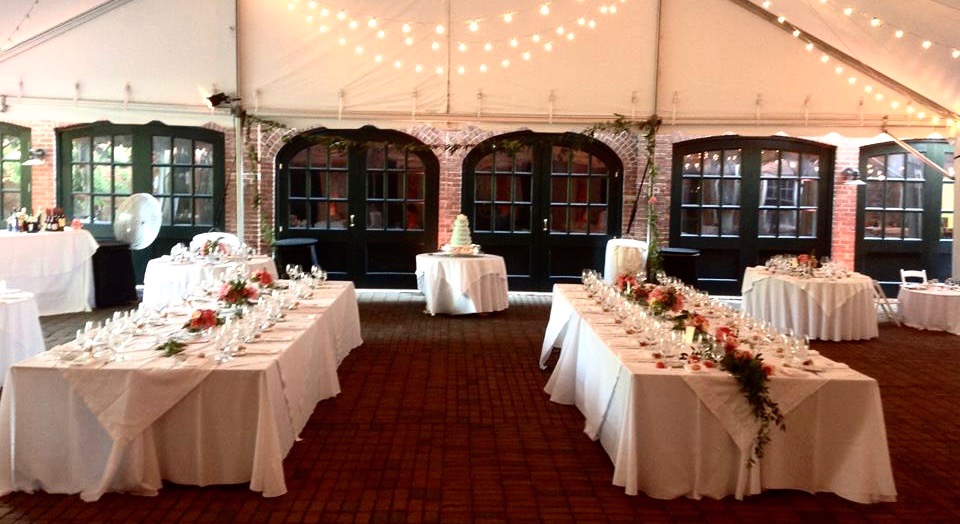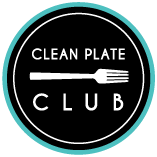
For most people, setting a wedding date is a big deal. And it’s just the beginning of a whirlwind of things to start planning. Luckily, your wedding planner will help with most of these details. Your planner should recommend caterers to provide food to your guests on the big day. After selecting a caterer, an event specialist will provide a sample menu that should fit your budget and vision for the wedding. What usually follows a sample menu is what’s called a tasting. A tasting is hosted by your caterer at their kitchen, and your catering event specialist will guide you through the tasting process.
The remainder of this post will help educate you on the tasting process, what to expect, when to schedule, and a few other good things to know about a wedding tasting.
- 1. What is a Wedding Tasting?
At its core, a wedding tasting is a time to get intimate with your menu selection. Everything from hors d’ oeuvres, main course offerings, and desserts will be experienced. The food will be styled in a similar fashion to how it will be served at your wedding reception. Chefs will be present to describe how each item is made, including what ingredients are used and the preparation process. During the discussion, ask chefs about menu modifications if you know you will need to accommodate dietary restrictions you or your guests may have.
Tastings are the perfect time to talk to your caterer about the kinds of flavors you want to experience, too. Maybe you would like to add more herbs into the mashed potatoes for your wedding buffet, or maybe the spice on your chicken was a little too hot. The tasting is the time to communicate these feelings, so the caterer has plenty of time to adjust your food menu.
Occasionally, a sampling of drinks for your event will be provided during the tasting. This is most likely if you have requested the caterer make and supply special cocktails that will be served during your reception. Like the food tasting, use the drink sampling to determine if the caterers are making your beverages with the correct ratio of ingredients. The drinks will also be presented in the same way as your wedding night, so take note you like their presentation.
While caterers are happy to help craft and serve a variety of drinks, the Clean Plate Club does not carry a liquor-by-the-drink license. Most catering companies don’t. That said, since caterers do not carry liquor licenses, they cannot buy and resale alcohol for you. You as the client must provide the liquor being served at your event and the caterer will ensure ABC certified bartenders will be there to serve your guests. Your caterer can also suggest wine pairings with the menu that will be served during the event, if you choose to accept that option.
- 2. What a Wedding Tasting Is Not
While wedding tastings are certainly an event themselves, they are not indicative of the full package of service the caterer will provide on the day of your reception. Tastings mainly focus on food and beverage offerings, not a full walkthrough of dinner service. You will not be exposed to the servers at your event, table settings, decorations, or music. While food will be plated appropriately, depending on changes made to the menu or other special requests, the plating style may vary at the reception.
While you will get to try a variety of menu items, you will not be able to taste everything your caterer offers. Your event specialist will help curate the tasting to showcase their expertise and the proposed menu you agreed on. From there, you can request substitutions or additional customizations to best suit your dietary needs. The good thing is that no one expects you to have everything figured out by the end of the tasting. Tastings are meant to be a collaborative and a way to share expectations and adjust the menu as needed.
Another thing to note is that tastings are not free. Your caterer invests time and resources to ensure your tasting goes smoothly. Just as chefs prepare food at restaurants, catering chefs must set aside certain quantities of food and manpower to put a wedding tasting together. We want you to have the best possible experience when working with us, and we want to make sure our wonderful staff are compensated for their time and dedication. Be sure to check with your event specialist before booking to receive a quote for the tasting.
- 3. What to Expect at Your Tasting
Now that we’ve covered what a tasting does and does not consist of, it’s time to go over what to expect during your wedding tasting. You will arrive at the catering site specified on your invoice for the tasting. Caterers have a designated tasting room where you will be hosted. Your event specialist and, occasionally, planner will accompany you to the tasting. They will act as a guide throughout the experience, explaining what course you’re eating, and the ingredients present in every item.
Expect questions about the quality of your food, the taste, dietary restrictions, and plating suggestions. Open conversation will flow naturally as you are served each course. Take this time to understand what your caterer is capable of and to share your thoughts on each item you taste. The chefs and event managers are there to answer questions, offer recommendations, and provide insight into every item you’re tasting.
By the time you finish the tasting, you should have a good idea of the competency of your caterer. Make sure you’ve clearly communicated all dietary restrictions to your caterer. This will give them plenty of time to prepare in advance for all your needs. Take time after the tasting to review your menu and then make the final decision that works best for you. You don’t have to finalize everything immediately, but it’s a good idea to get back in touch with your caterer in about a week to agree on the menu for your event.
- 4. When to Schedule Your Tasting
Scheduling a tasting takes planning, but as long as you book in advance of your wedding date, it should be fine. Before calling to schedule a tasting, have a good idea of your guest count, venue, and dietary restrictions in mind. The general rule of booking a wedding tasting is to book about 6-7 months before your reception date. This way, your caterer has plenty of dates to choose from and they can plan accordingly. It also gives you and your event planner the opportunity to decide on menu changes well before the big day.
While scheduling a tasting in advance is a great practice, trying to book too far ahead of your wedding day may end up being detrimental. Scheduling a wedding tasting over a year in advance is not recommended, as catering menu offerings could change. Staying in constant communication with a caterer for over a year can also put a strain on yourself and the company. Caterers stay busy year-round and handle several different events in any given week. This can make it challenging for them to maintain an open line of discussion about changes to their food and pricing options over a year with a single client. During that time your guest count could fluctuate, as well, so try to schedule a wedding tasting a maximum of 7 months before the big day.
- 5. You Don’t Always Have to Schedule a Tasting
Chances are you have a million other details you need to focus on for your wedding and incorporating a tasting can take away from the time you could be spending working on another aspect of your wedding. Deciding not to do a tasting isn’t uncommon, especially if the caterer you’re working with has a good reputation for offering quality food and service. If you communicate dietary needs to the caterer when designing your menu, they will let you know what will be in the food you have selected. Gluten, nut, dairy, and other allergies will be noted regardless of whether you have scheduled a tasting or not.
You can still make menu changes without doing a wedding tasting, too. Most event specialists who work with caterers are very good at describing what will be offered on your wedding reception menu, and they are happy to explain anything that doesn’t sound familiar. If you request substitutions, they can talk you through those options until you find something to fit your needs. The same goes for drink recommendations. Your caterer can send you a selection of beverages that work with your budget and food choices. If you and your event planner have reviewed your menu and agree that it fits your needs, you don’t have to schedule a wedding tasting. It saves you time and money and removes one of the many steps of wedding planning.
To Taste or Not to Taste
Tastings are a fun part of putting together your reception menu. They give you a chance to try everything you picked for dinner, including appetizers, desserts, and drinks. Tastings are the perfect time to communicate menu changes you’d like to see and/or your dietary needs. Nearly every food can be modified to be gluten free, no nuts, no dairy, etc. The Clean Plate Club Catering also caters to special dietary laws and practices of different cultures and religious groups. If you or your guests need accommodation, let Clean Plate Club know in advance and they will happily prepare something to your specifications.
While tastings are fantastic at helping you finalize your menu, if you have a reputable caterer, chances are the food will be delicious. Assuming you are pleased with your menu selection, sometimes a tasting is not necessary. Forgoing this step will save you time and money, so don’t feel obligated to have to plan for a formal tasting before your event. Always ask questions and do not feel pressured to request accommodation when attending a tasting. Your caterer is here to make sure your day will be remembered forever.




